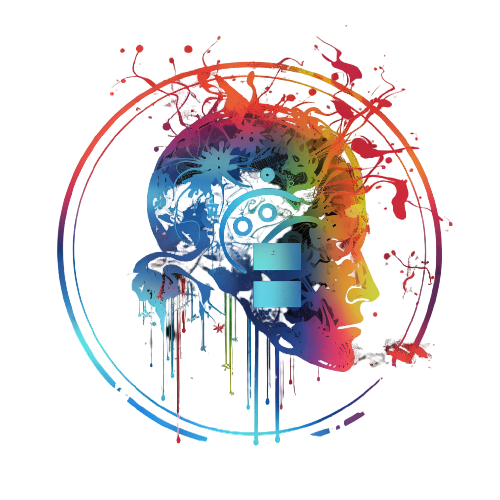AI-Powered Tools and the Workforce: Embrace the Change and Future-Proof Your Career
In this article, we discuss the impact of AI tools like ChatGPT on the workforce and explore strategies to help professionals stay relevant and competitive in an AI-driven future.
AI-Powered Tools and the Future of Work
Since OpenAI released ChatGPT to the public, talk of AI-powered tools has become ubiquitous. While AI-powered tools like ChatGPT offer a host of benefits such as increased productivity and streamlined workflows, they also raise concerns about how AI will impact the workforce.
Workers' Fear of AI Taking Over Jobs
Research shows that 35% of Americans fear AI could make their work redundant, as ChatGPT has already replaced some workers. Workers fear AI is coming for their jobs due to the rapid adoption of AI tools and AI replacing some jobs. Tech sector workers are the most worried about AI, while workers in the public sector are the least concerned.
AI Trends: What's Happening Now and What's to Come
AI tools are changing the workplace in various ways, such as helping write code, generating copy and creating content, providing customer support, and streamlining HR processes. Additionally, tech giants like Microsoft and Salesforce are integrating AI tools like ChatGPT into their products, further increasing AI adoption.
Microsoft and ChatGPT
Microsoft has folded ChatGPT into Microsoft 365 through Copilot, an AI tool embedded in Microsoft Word, Excel, PowerPoint, Outlook, and Teams. Using much of the functionality present in ChatGPT, Copilot can draft proposals in Word based on provided data, analyze trends, give project breakdowns in Excel, and generate PowerPoint slides based on information pulled from a Word file.
Salesforce and ChatGPT
Salesforce has also incorporated ChatGPT into its product line, creating Einstein GPT. Salesforce says this is the first generative AI for customer relationship management software. It can help generate personalized emails for salespeople, generate responses to customer queries, create targeted content for marketers, and create code for developers. Salesforce has also integrated ChatGPT with Slack to help with conversation summaries and offer writing assistance.
The Future of AI Tools
Cutting-edge AI tools like GPT-4 and Google Bard offer glimpses into the potential of AI technology. These tools have better problem-solving abilities, broader general knowledge, and can even use visual input like photographs. While the continued rollout of AI tools will always have a significant impact, these tools appear to make work slightly better for employees across the board.
GPT-4
OpenAI released ChatGPT in November 2022. The company has since released GPT-4, which surpasses ChatGPT on every measure. GPT-4 was found to have better problem-solving abilities and broader general knowledge. It can also use visual input like photographs. GPT-4 scored in the 90th percentile on the Uniform Bar Exam ― up from the 10th percentile for ChatGPT ― and in the 99th percentile in the Biology Olympiad ― up from the 31st percentile for ChatGPT. With such rapid advancements in AI technology, it's becoming increasingly difficult to predict the future of AI tools and their impact on the workforce.
Other cutting-edge AI-powered tools to keep an eye on include Google Bard, Meta's LLaMa and CICERO, Stability AI, and PwC's AI-powered tool for lawyers. While the impact of these tools on the workplace is yet to be fully understood, it's clear that the trend of AI-powered tools in business is here to stay.
Prepare for an AI-Powered Future: Strategies for Success
With the rapid pace of AI tool adoption, it's understandable for professionals to be concerned about their employability. However, there are steps workers can take to future-proof their careers in the age of AI.
- Develop soft skills: While AI tools can automate many tasks, they struggle to replicate skills such as empathy, communication, and problem-solving. By focusing on developing these soft skills, workers can set themselves apart from machines and stay relevant in the job market.
- Learn AI-relevant skills: While some jobs may be replaced by AI, new job categories are also being created that require skills related to AI systems. Workers can prepare for this future by acquiring in-demand career skills in areas such as machine learning, natural language processing, and data analysis. AI educational resources are increasingly available, such as the free crash course in AI offered by the University of Helsinki in multiple languages.
- Gain hands-on experience: Familiarity with AI tools such as ChatGPT can help demonstrate adaptability and knowledge of emerging technologies. This can be particularly beneficial for freelance writers and content creators, who can use AI-powered tools to automate tasks such as research or creating rough drafts (as long as it does not go against any standards or regulations their clients have in place).
The rapid pace of AI tool adoption in the workplace has caused concern for many professionals. However, it's important to remember that AI tools are intended to lighten employees' loads, not replace them entirely. As AI technology continues to evolve, workers can take steps to future-proof their careers by developing soft skills, learning AI-relevant skills, and gaining hands-on experience with AI-powered tools. By embracing these changes and adapting to the new technological landscape, workers can position themselves for success in the age of AI.
Stay informed and engaged with the latest developments in technology, AI, and the intersection of mind and creation by signing up for our newsletter.
As a member, you'll gain access to exclusive content and join a community focused on shaping the future of the internet to ensure it remains a space where human values and innovation can thrive. Additionally, feel free to connect with me on LinkedIn.
